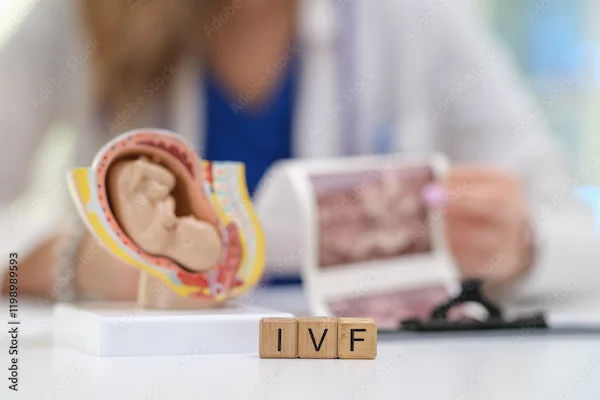Pregnancy Symptoms Awareness: What to Expect and How to Manage
Learn what to expect during pregnancy. Discover common early pregnancy symptoms, baby development, and essential tips to ensure a healthy pregnancy for you and your baby.

Written by Dr. Sonia Bhatt
Last updated on 3rd Jul, 2025

Introduction
Pregnancy is an exciting journey filled with changes and new experiences. Understanding the symptoms you might encounter can help you to pass this period with confidence and ease.
Early Signs of Pregnancy
The first signs that you might be pregnant often show up before you even take a test. These symptoms happen because of changes in your hormones. Some early signs include:
Missed Period: Missing a period is a well-known sign of pregnancy. But if your periods aren't regular, it's a good idea to take a pregnancy test to be sure. It's also important to remember that other things like stress, big weight changes, or certain health conditions can also cause you to miss a period. So, it's always a good idea to talk to a doctor to find out why you missed your period.
Fatigue: Feeling extra tired is common in early pregnancy because of higher hormone progesterone levels. This hormone helps support your pregnancy but can also make you sleepy and low energy. It's important to listen to your body and get lots of rest. Low blood sugar sometimes can worsen fatigue, so keeping healthy snacks around can help you stay energised.
Nausea and Vomiting: Often referred as morning sickness, nausea can occur at any time of the day and is usually due to increased levels of human chorionic gonadotropin (hCG). This symptom typically starts around the sixth week of pregnancy and last upto start of second trimester, although some women may experience it throughout their pregnancy. Keeping a food diary can help identify any triggers and find patterns that can be avoided.
Breast Changes: Your breasts can be tender, swollen, or tingly as early as one to two weeks after conception. This happens due to hormonal changes, to prepare your body for breastfeeding. Additionally, the area around your nipples (areola) may darken and enlarge, and you might notice more pronounced veins on your breasts as your blood supply increases.
Frequent Urination: Hormonal changes in pregnancy lead to increased blood flow to your kidneys, causing you to feel the need to urinate more often. This symptom can begin as early as six weeks into the pregnancy and often persists throughout the pregnancy as the growing uterus puts pressure on the bladder.
Spotting and Cramping: Light bleeding and cramping can occur when the fertilised egg implants in the uterus. It is known as implantation bleeding. Implantation bleeding is normally lighter and shorter than a regular period. If you experience heavy bleeding or severe cramping, it’s important to contact your doctor as it may indicate a more serious condition.
Managing Early Pregnancy Symptoms
While these symptoms are common, they can be uncomfortable. Here are some tips to help manage them:
Eat Small, Frequent Meals: Eating small, frequent meals can help manage nausea and stabilise energy levels. Ginger, whether in tea, candies, or meals, can also help alleviate nausea.
Stay Hydrated: Drink water throughout the day. Ginger tea or peppermint tea is also good to soothe your stomach. Dehydration can worsen nausea and fatigue, so ensure you’re drinking enough fluids. If drinking liquids becomes challenging, try consuming ice chips or frozen fruit pops.
Get Plenty of Rest: Fatigue is common, so make sure to get enough sleep and take short naps during the day. Creating a comforting bedtime routine, like reading a book or taking a warm bath, can help improve the quality of your sleep.
Avoid Triggers: Identify and avoid foods or smells that trigger nausea. These might include strong odours, spicy foods, or greasy meals. Eating plain, easy-to-digest foods like crackers, toast, or bananas can be more soothing to your stomach.
Wear Acupressure Wristbands: These can help relieve nausea by applying gentle pressure to specific points on your wrist. They are readily available at pharmacies and are safe to use during pregnancy.
Take Prenatal Vitamins at Night: Taking prenatal vitamin supplements with a small snack or meal at night can help reduce nausea. Ensure that your prenatal vitamins include folic acid, iron, and calcium, as these nutrients are crucial for your baby’s development.
Mid to Late Pregnancy Symptoms
As your pregnancy progresses, you may experience new symptoms:
Back Pain: The extra weight in pregnancy and changes in posture can lead to back pain. Centre of gravity of your body shifts as your belly grows, which can strain your lower back and pelvis. Strengthening your back and abdominal muscles through gentle exercises can help provide relief.
Swelling: Your body retains more fluid during pregnancy, which cause swelling in your hands, feet, and ankles. This is known as oedema and is usually more noticeable in the third trimester. Elevating your feet and avoiding standing for long periods can help reduce swelling.
Heartburn: Hormonal changes can relax the valve between your stomach and oesophagus, leading to heartburn. Eating smaller and more frequent meals can help. Avoid lying down immediately after eating to manage this symptom. Antacids may also provide relief, but always consult your doctor before taking any medication.
Shortness of Breath: Your growing uterus can push against your diaphragm, making it harder to breathe. This is common in the later stages of pregnancy, particularly in the third trimester. Practising good posture and sleeping with your head elevated can help alleviate this symptom.
Braxton Hicks Contractions: These are practice contractions which can start as early as the second trimester. They are usually irregular and less intense than true labour contractions. Staying hydrated and changing positions can help ease these contractions.
Managing Mid to Late Pregnancy Symptoms
Here are some tips to manage these symptoms:
Practice Good Posture: To alleviate back pain, maintain good posture. Use supportive chairs and consider a pregnancy pillow to help you sleep more comfortably. Prenatal yoga and gentle stretching exercises can help to maintain flexibility and reduce pain.
Elevate Your Feet: Elevate your feet to reduce swelling. Wearing compression stockings can also help improve circulation and reduce fluid retention. Avoiding salty foods can prevent additional fluid retention.
Eat Small, Frequent Meals: Eating smaller meals can help manage heartburn. Avoid spicy, fatty, or acidic foods, as they can trigger heartburn. Chewing gum after meals can also help neutralise stomach acid.
Stay Active: Gentle exercise, like walking or prenatal yoga, can help with circulation and overall well-being. Regular physical activity can also help manage weight gain and reduce the risk of gestational diabetes and high blood pressure.
Stay Hydrated: Drink plenty of water to help reduce swelling. Adequate hydration is essential for maintaining amniotic fluid levels and supporting your baby’s development. If you’re having trouble drinking plain water, add a splash of fruit juice or infuse it with fresh fruits.
Rest and Relax: Take time to rest and relax to manage shortness of breath and Braxton Hicks contractions. Practising relaxation techniques such as deep breathing, meditation, or prenatal massage can help reduce stress and improve your overall well-being.
When to Seek Medical Advice
While many pregnancy symptoms are typical, some require immediate medical attention. Here are some warning signs to watch out for:
Severe Abdominal Pain: Pain in the abdomen, especially if accompanied by chills or fever, should be checked by a doctor. This could indicate a serious condition such as preeclampsia, ectopic pregnancy, or placental abruption.
Persistent Headaches: Severe or persistent headaches can be a sign of high blood pressure or preeclampsia. Contact your healthcare provider if you experience headaches that do not go away with rest or medication.
Dizziness or Fainting: A healthcare professional should evaluate Persistent dizziness or fainting. This could be a sign of anaemia, low blood sugar, or other underlying conditions.
Vaginal Bleeding: Any amount of vaginal bleeding should be reported to your doctor. While light spotting can be expected, heavy bleeding could indicate a miscarriage or other complications.
Decreased Fetal Movement: A noticeable reduction in your baby's movements should be checked by your healthcare provider. Monitoring your baby’s movements and keeping track of their activity can help ensure they are healthy and developing well.
Conclusion
Being aware of the symptoms you might experience during pregnancy can help you feel more prepared and in control. Remember, every pregnancy is unique, and it is essential to listen to your body and seek medical advice when needed. By staying informed and taking care of yourself, you can enjoy this special time with confidence and peace of mind.
Consult Top Obstetrician-Gynecologists
Consult Top Obstetrician-Gynecologists

Dr Swatika Kumari
Obstetrician and Gynaecologist
19 Years • MBBS, DGO, DNB Obstetrics & Gynaecology
Nashik
Apollo 24|7 Clinic - Maharashtra, Nashik

Dr. Priyanka Surisetty
Obstetrician and Gynaecologist
8 Years • MBBS, DGO
Visakhapatnam
Apollo 24|7 Clinic - Andhra Pradesh, Visakhapatnam

Dr. Shailaja L
Obstetrician and Gynaecologist
16 Years • MBBS, MS
Bangalore
Apollo 24|7 Clinic - Karnataka, Bangalore

Dr. Asha Rani Singh
Obstetrician and Gynaecologist
24 Years • MBBS DGO
Delhi
Dr Asha Rani Singh Clinic, Delhi

Dr. Mona Yadav
Obstetrician and Gynaecologist
19 Years • MBBS, MD (Obstetrics & Gynaecology)
Dombivli
Nulife multispeciality, Dombivli




